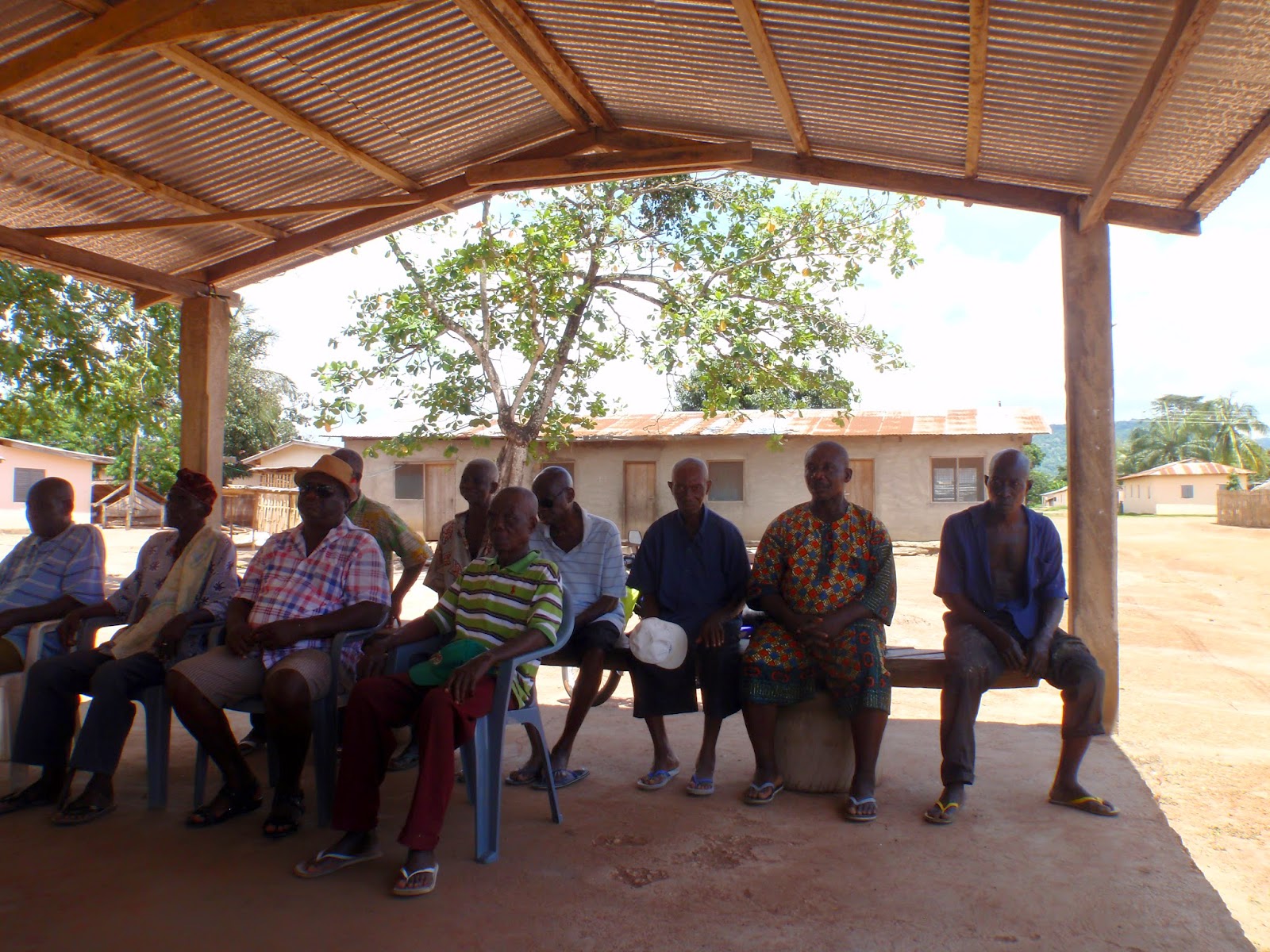Thursday, September 25, 2014
We had the same time schedule today, but we had a better breakfast. They had porridge and also crepes added to
the menu—it was better than usual, probably because the hotel was busier that
day. We have even gotten used to the
hotel, even the bed—go figure—tender little mercies I suspect.
We still had 3 more sites to look at, one up another mountain even
higher than the last one, but not as dangerous a road. It is actually the area where Angela comes
from (appointed district mayor). It is
amazing to see what these people can do.
They carried poly tanks up the mountain and down to the spring. After our meeting I walked down to the
spring, keeping in mind that these women come back up the rocky trail with
large pans of water on their heads. They
are part mountain goat, and they wear little flip flops while doing it. I, on the other hand had a man named Atta on
one hand with Joseph holding the other, all the time Atta telling me to ‘go
slowly, be careful, step this way’. Angela
walked down there for old times’ sake since that is what she used to do when
she was a ‘regular’ person. The project
will be to pump the water up from the spring to the village, and then taking it
to water points. If an engineer says
there will be enough water, they might even pay to have pipes taken close to
their individual homes—what an exciting improvement. I don’t think pictures can tell the story
about how slippery mossy rocks are, how difficult the path that these women
take carrying their water!

I had help from
two men to get me down these moss-covered rocks, but these ladies bring water
up them like it was nothing at all, and they wear flip flops while hiking!
Also after our first meeting with this community, another group of
people hiked down so that they could talk to us about their water needs. The reason they hiked down is that there is
no road to their village—we would have had to hike up a steep mountain to get
there. They are putting in a biking
trail so that a motorcycle could go between the two villages. We can’t believe what these people are
capable of!
The men and
Angela checking out the spring box at the bottom of the rocky climb. They carried those poly tanks down there!
After our hike we departed and went on a long drive to the last
village. I was a bit annoyed from the
beginning with them because even with Angela with us, it seemed difficult to
arouse them enough to show up to the meeting, like they could care less, and
they are the ones that want help. We
shall see.
Our goal was to leave for Accra at noon, but I am sure it was at least 1 PM before we were able to do so. We
stopped for lunch at the nice hotel, this time deserted by those herds of
people that were there because it was a vacation day (Founders Day Clarence
said). I thought how fun it would be to
go there without all those people.
We got back to the hotel in Accra at 6 PM and saw how crowded it was here, teaming with people from various
countries, some of them NGO’s I would guess and many businessmen. We came to take a wonderful, normal shower
(not out of a bucket), sleep on a much softer bed, and eat a bit better
food. Gee, it actually feels like we are
‘home’. Tomorrow we go to the office at 8:30 to begin our paperwork and project development
worksheets for the two areas to request various types of water projects for
some of the villages we visited. We
depart on Saturday, but then it takes a couple of days to get home.
See you soon.
Love, Mom & Dad, Jim & Karen, E/S Greding


























































